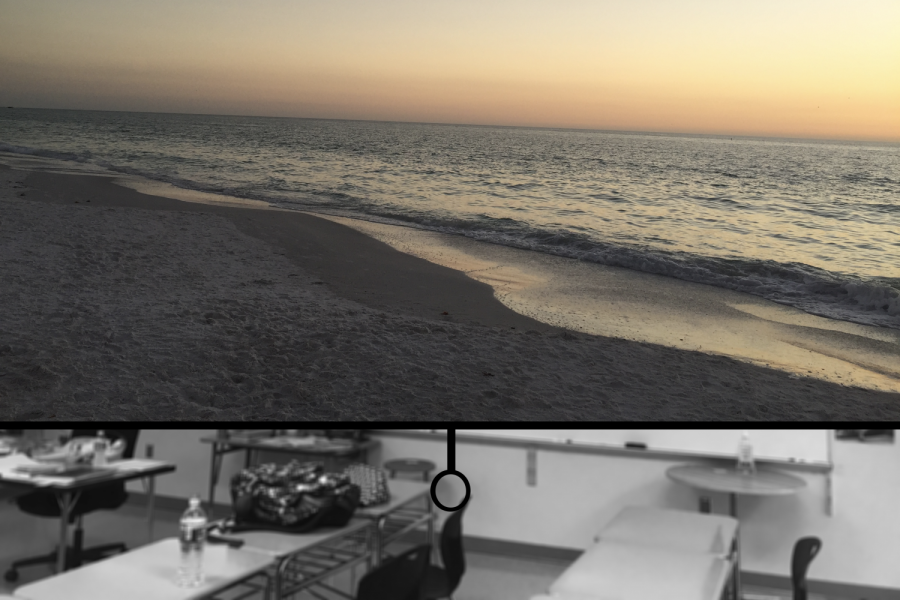Extended summer = extended boredom and plenty of school year misery
Summer overshadows the school year.
October 10, 2017
Due to a mandate for schools created last year by Governor Larry Hogan, The 2017-2018 school year started after Labor Day and ended by June 15 for all Maryland public schools. This, in addition with the required 180-day school year, and breaks for holidays and snow days, is leaving the 2018-2019 schedule in a tight pinch. As individual school systems begin planning for the 2018-2019 school year, educators and community members are again asking where to trim the days.
This doesn’t come as much as a surprise, as problems with the school schedule have already begun emerging this year.
On the surface, starting school later and giving students a longer summer seems great; there’s more time to vacation, more time to hang out with friends, and, most important, less time in school. This isn’t exactly the case. The Frederick County school year is the same 180-day length as last year’s, so where did the extra days of summer come from?
To make up the difference of a longer summer break, other breaks are shortened, and days off are less frequent.
Gone–two days of winter break.
Gone–five days of spring break.
This is a hindrance to students as most of us need a break while we’re actually in the midst of school, not when we’re already relaxing.
This also poses the question: Do we need a longer summer? By the end of every summer I’m overheated and bored out of my mind. Extending the summer has only increased this feeling tenfold as now I have even more time to sit around and ponder what my life is without structure.
Of course, I understand the benefits of the school year starting later. An extended summer means that Maryland gets more tourists; schools have to spend less on air conditioning; and students have more time to prepare to return to school.
From a student’s perspective though, things appear differently. Sure, some of us get a little while longer to work during the summer and make some money we wouldn’t have otherwise, but more money in Ocean City doesn’t matter to me because I live hours away in Frederick.
Two additional weeks of summer can also make a huge impact on a student’s memory and comprehension of complex classes and information. This is typically referred to as “brain drain.” Suddenly all those trigonometry identities and German verb conjugations have disappeared from students’ minds. I can tell you my brain was completely drained.
Class of 2018 member, Rozmia Fattah, said, “Not only does the extended summer mean that we as students have shorter breaks and less days off during the school year, but it also leaves upperclassmen scrambling to meet deadlines for Honor Societies and other applications that we’d normally have two extra weeks to prepare for. That time that was used to get everyone back into the groove of school was taken away.”
Even to adults, a longer summer isn’t all benefits. Teachers are getting just as few breaks as students throughout the year and fewer days to use to grade papers or even have some free time to themselves to recover from the constant lesson planning.
One social studies teacher said, “There’s fewer four and three day work weeks and less days for spring and winter break.”
“Teachers may burn out quicker, meaning more substitutes and less instruction.” He added.
Parents in low-income households are also impacted. Their children stay out of school for too long and do not receive the free meals the school provides. Parents with younger children also may not be able to afford the longer summer of daycare. And some parents simply just want their children out of the house and back to school, back to structure.
A longer summer seems unnecessary if you look at it from any viewpoint except for those few who are making money from tourists.
Breaks are shorter during the year–when rest is much needed. Students don’t gain much of a benefit, and summer, frankly, just drags on for too long.






